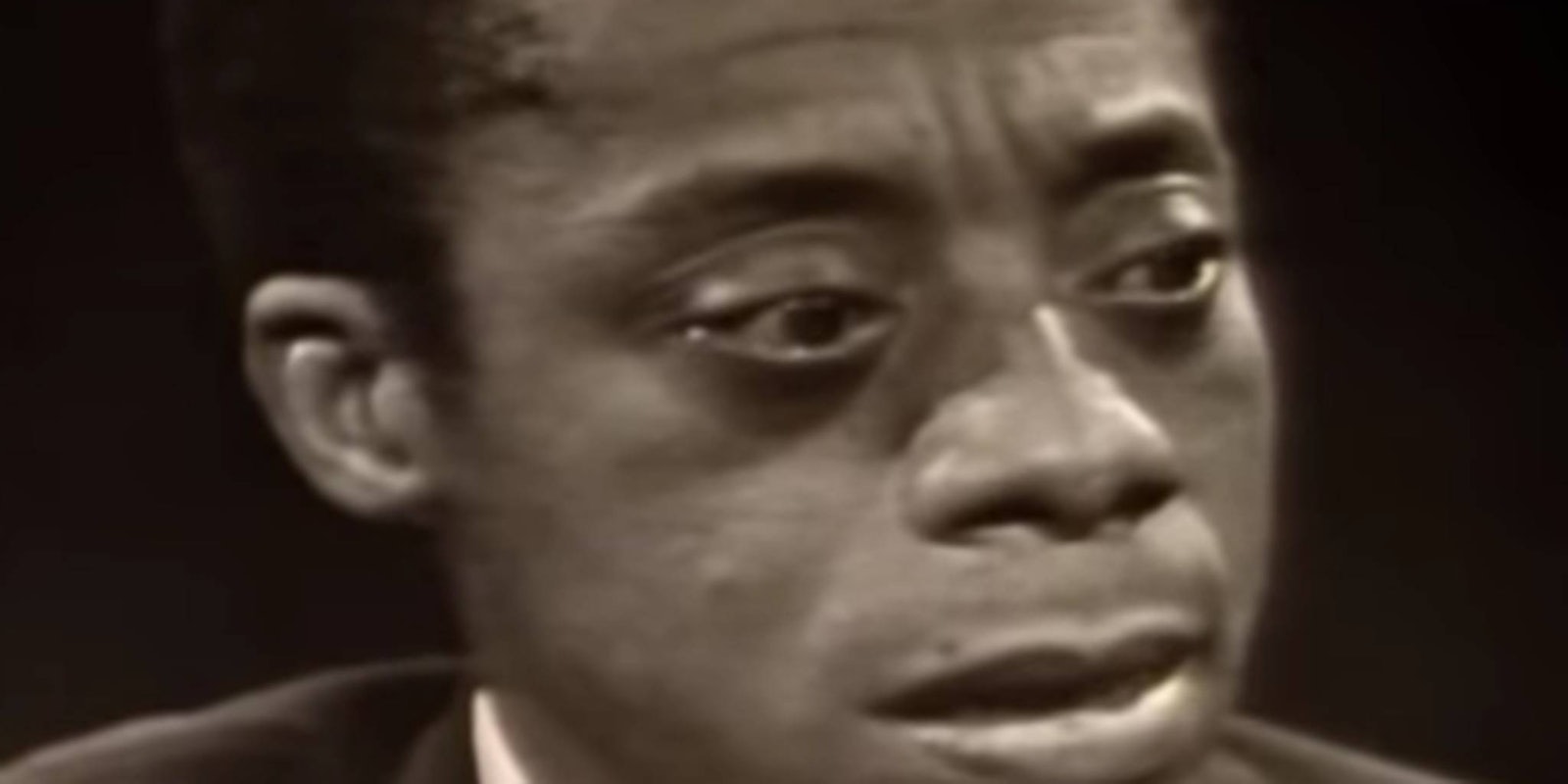Filmmaker Roaul Peck’s dignified and jarring I Am Not Your Negro portrays acclaimed author and thinker James Baldwin, at his clearest and most somber. Peck utilizes the author’s teetotalling prescience in explaining the black experience as essential to America, elevating Baldwin to prophetic status.
“I’m terrified at the moral apathy—the death of the heart—which is happening in my country. These people have deluded themselves for so long that they really don’t think I’m human,” Baldwin says in the film, which hit theaters nationwide on Friday.
The Fire Next Time (1992) by James Baldwin
Get it now here https://t.co/1ET8hSzNUa pic.twitter.com/asNFTzKT6b— SuperheroesInColor (@HeroesInColor00) January 27, 2017
The words Baldwin spoke maintain more clarity than ever, especially in the dawn of Donald Trump‘s presidency, an administration that seems determined to advance the supremacy that the defiant Baldwin, and many others of his time, bravely fought. Baldwin is best known for his work exploring the intersectional nuances and tensions of Western society. These are found in his books The Fire Next Time (1963), No Name in the Street (1972), and The Devil Finds Work (1976).
The film operates in three parts, each digging into America’s morally hazardous historical record versus its apple pie superficiality. Peck chose to use an unfinished 30-page memoir, Remember This House, as the film’s spine, recollecting the lives of Baldwin friends Martin Luther King Jr., Medgar Evers, and Malcolm X. Having lived outside of America for large swaths of his life, Baldwin’s worldview provides a unique and cosmopolitan perspective.
.@SamuelLJackson talks #IAmNotYourNegro and James Baldwin’s influence on @JimmyKimmelLive. https://t.co/UsASpYlrwF
— I Am Not Your Negro (@IAmNotYourNegro) January 27, 2017
Most known for directing Lumumba, his 2000 biopic about the life and assassination of Congolese leader and martyr Patrice Lumumba, Peck pitches Baldwin upward via the force of Baldwin’s own persona, freeing himself from perceptible visibility. A stroke of genius, Peck recruited Samuel L. Jackson to “play” the urbane Baldwin with subtlety and introspection. However, the vaunted author’s own stark (and televised) criticisms, and accompanying expressions, carry the film to Everest heights.
His debate with William Buckley, and appearances on The Dick Cavett Show, bring to life Baldwin’s wisdom.
While Trump himself is never discussed or mentioned, American-styled institutional bigotry and its origins aren’t only investigated, they’re skillfully distilled by Baldwin. For his part, Peck juxtaposes the ideals of classic American film, and the simultaneously occurring cruel realities plaguing black America.
Baldwin examines whether and how the so-called American dream has been achieved on the collective backs of black Americans. It’s a convergence of what’s said and what isn’t always understood, forcing viewers to unpack a familiar and usually unspoken apathy toward race and racism.
I Am Not Your Negro is sure to awaken emotions, causing anxiety in many unwilling. If the devolution located on the film’s IMDB is any indication, the film has arrived right on time, forcing exploration of America’s soul.


